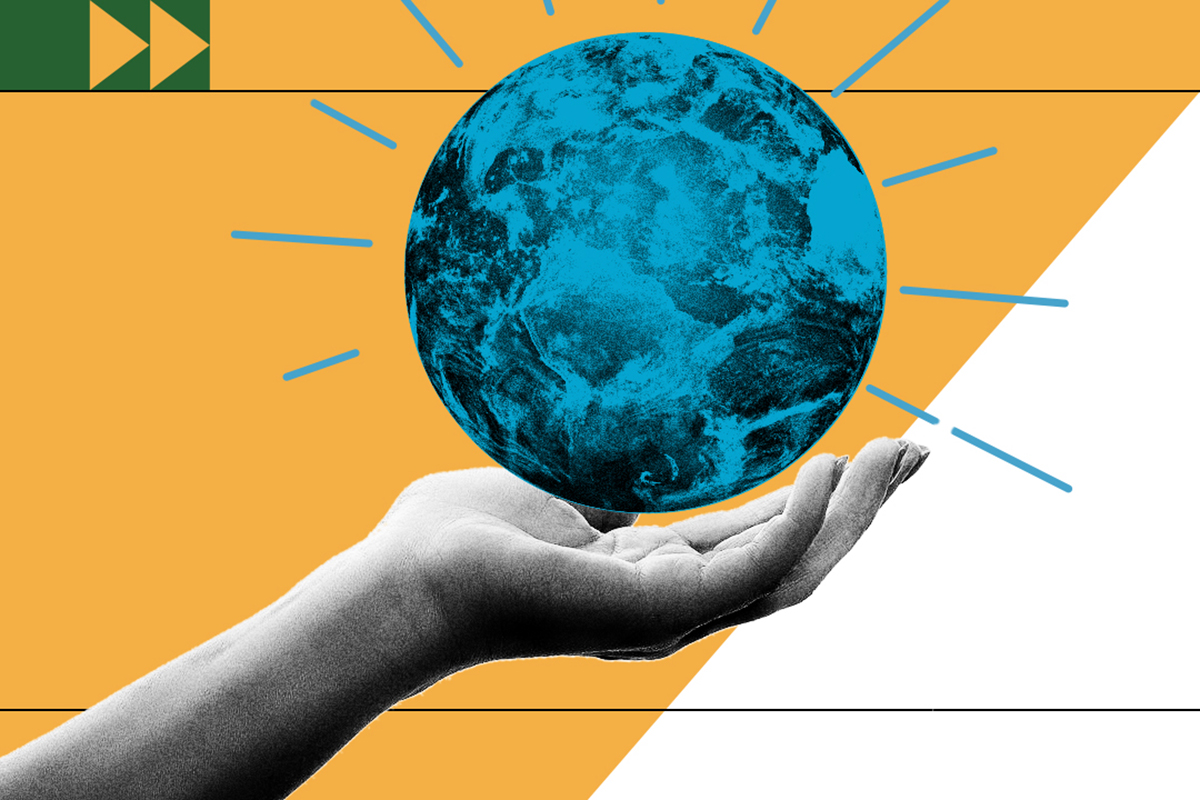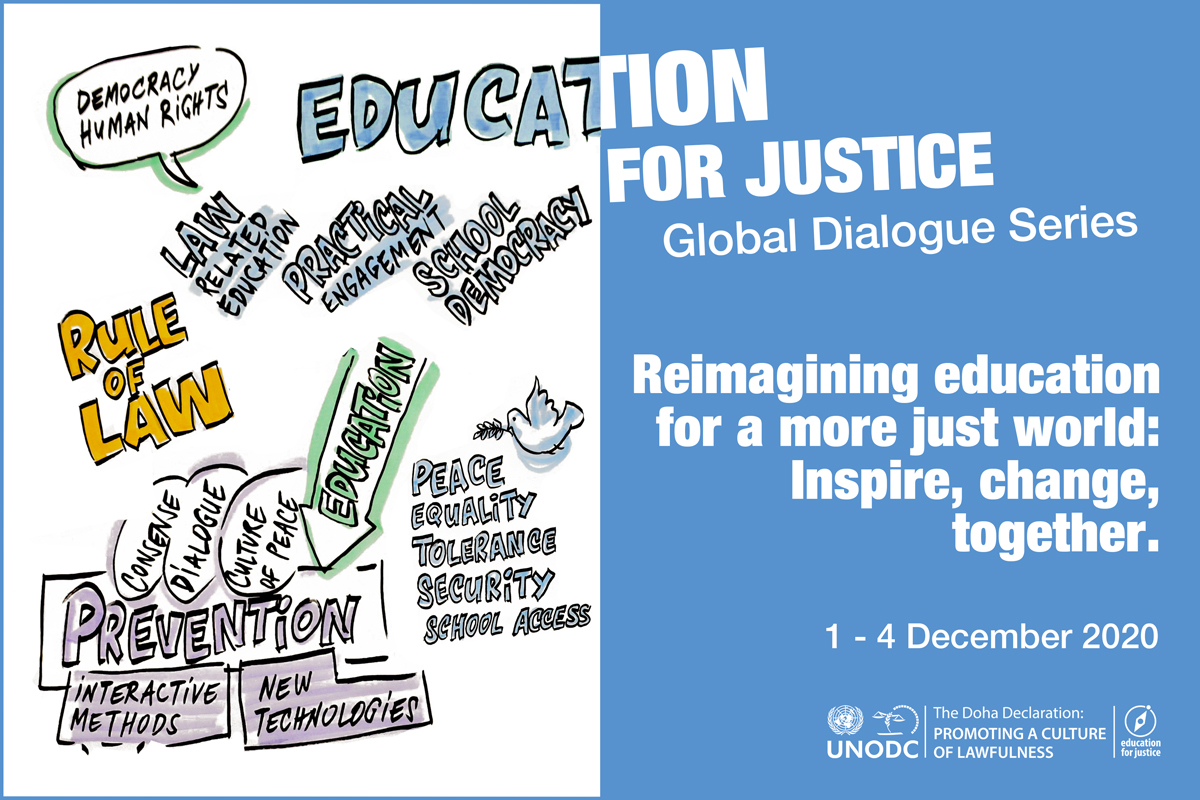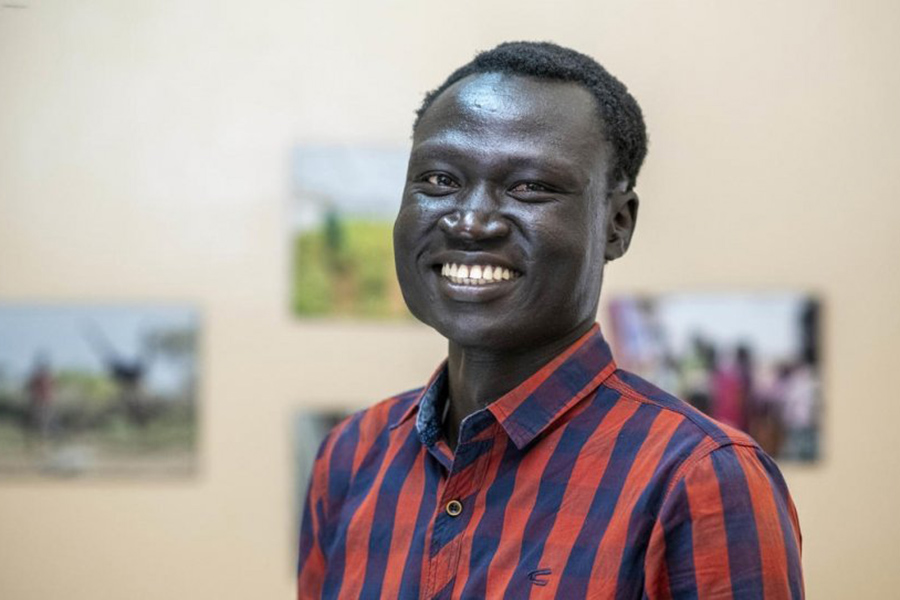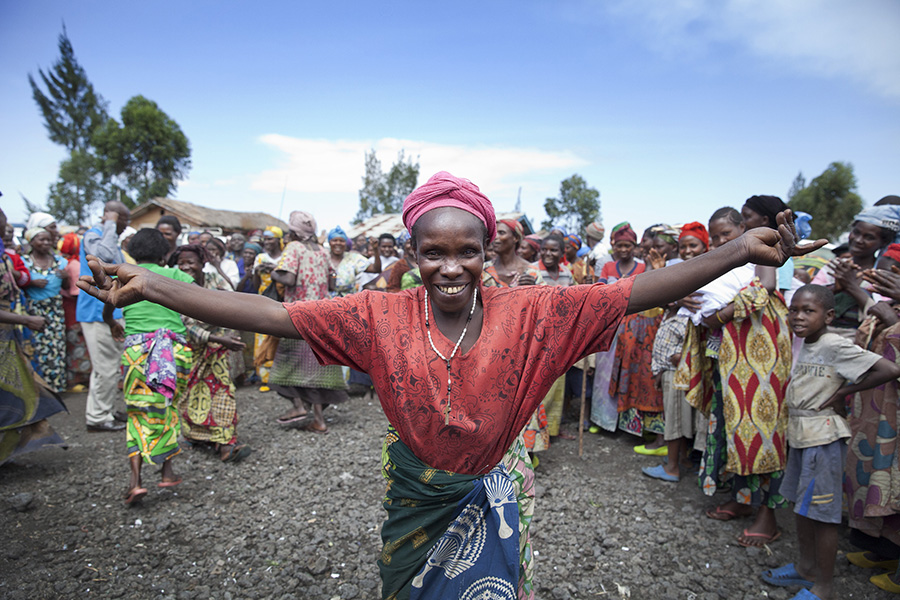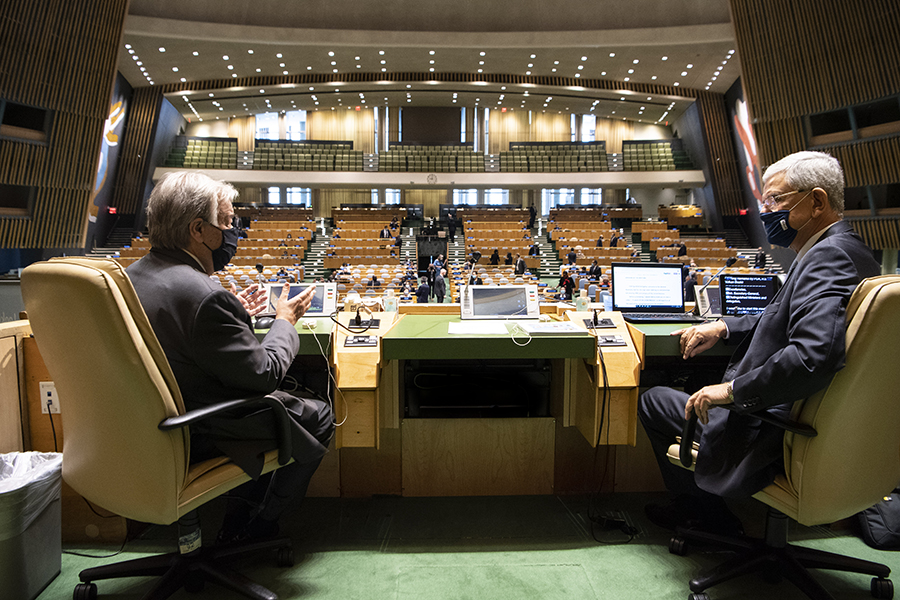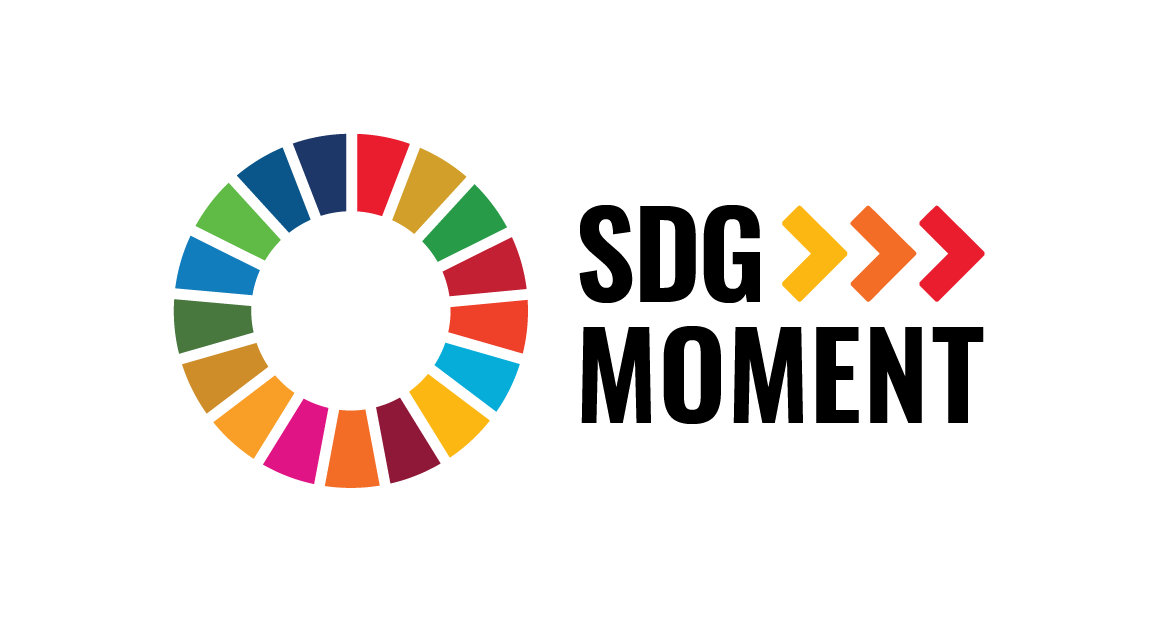We need to strengthen action to protect and restore nature and the nature-based solutions to achieve the Sustainable Development Goals in its three complementary dimensions: social, economic and environmental. The fifth session of the UN Environment Assembly (UNEA-5) starts today and it provides an opportunity for Member States and Stakeholders to take ambitious steps towards building back better and greener by ensuring that investments in economic recovery after the COVID-19 pandemic contribute to sustainable development.
Scientific assessments estimate that humanity has ten years remaining to solve the environmental challenges it faces, including climate change, biodiversity loss, pollution management, ocean protection, as well as air and water quality. Business as usual in the global economy is clearly not working. Big data, artificial intelligence (AI) and digital transformation can play important roles to ensure sustainable development. UNESCO, in collaboration with UNEP and partners, is organizing the global virtual conference AI for the Planet, to inspire further actions in this field.
Indigenous Peoples have suffered disproportionately from the economic impacts of COVID-19, yet they hold essential knowledge for rebuilding a more sustainable and resilient post-pandemic world, free of poverty and hunger, said IFAD President, at the Fifth global meeting of the Indigenous Peoples’ Forum. This biennial meeting held virtually this year, focuses on the value of indigenous food system resilience in the context of the COVID-19 pandemic. Hosted by IFAD, it brings together 154 indigenous leaders from 57 countries, as well as development organizations and governments.
To address climate change, the Paris Agreement aims to substantially reduce global greenhouse gas emissions and to limit the global temperature increase in this century to 2 degrees Celsius. It includes commitments from all countries to reduce their emissions and work together to adapt to the impacts of climate change and calls on countries to strengthen their commitments over time. The Agreement entered into force on 4 November 2016, and to this date 189 countries have ratified it. Most recently, the Secretary-General welcomed the United States return to the accord.
The UN Food Systems Summit is a turning point in the world’s journey to achieving the SDGs by 2030. Over the next year, the Summit will raise global awareness, deepen our understanding of the problems we must solve, and set a course to radically change the way we produce, process, and consume food. The Global Forum for Food and Agriculture (GFFA) is taking place now in Germany to provide an international audience of experts from various sectors with an opportunity to address and reach consensus on issues and challenges relating to global agricultural policy and food security.
Throughout history countries have pursued disarmament to build a safer, more secure world and to protect people from harm. Since the foundation of the United Nations disarmament and arms control have played a critical role in preventing and ending crises and armed conflict. On 18 January member states will gather at the session of the Conference on Disarmament. The Conference was recognized by the first Special Session on Disarmament of the United Nations General Assembly (1978) as the single multilateral disarmament negotiating forum of the international community.
The UN Food Systems Summit is a turning point in the world's journey to achieving the SDGs by 2030. Over the next year, the Summit aims to set a course to radically change the way we produce, process, and consume food. It will be a people's summit—giving a voice to citizens, bringing us closer to realizing an equitable and healthy future. Everything and everyone must change – that means understanding the tradeoffs, but also recognizing that all can benefit. Rebuilding food systems enables us to answer the Secretary-General's call to "build back better" and to leave no one behind.
From 1-4 December, UNODC is hosting the Education for Justice (E4J) Global Dialogue Series. More than 35 online interactive panels will discuss how the international education community is working towards teaching justice and rule of law issues, with inspiration from innovative approaches from around the world to ensure that learning never stops even during a global pandemic. Join E4J and see how the UN and its partners are reimagining education for a more just world, and inspiring change together!
“Give us a space at the table and we’ll change the world,” said Hindou Oumarou Ibrahim, an activist from Chad who advocates for environmental justice and the rights of Indigenous Peoples. Established in 2007, the High Commissioner’s Dialogue facilitates an exchange of views between refugees, governments, civil society, the private sector, academics and international organizations on emerging challenges in humanitarian protection. This year, UN Refugee’s focus is on how the COVID-19 pandemic affects displaced and stateless people.
Today, the UN Security Council marks 20 years since the historic vote that recognized, for the first time, the unique impact conflict has on women and the critical role they play in conflict prevention and resolution. The Council will convene its annual Open Debate on resolution 1325 on Women, Peace and Security to ensure a COVID-19 response that is truly inclusive and rooted in the power of women-led peace, as a transformative opportunity towards a more, sustainable and equitable world. Watch the debate on 29 October, at 10:00 a.m. EDT.
Due to COVID-19, the 10th session of the Conference of the Parties will take place on 12-16 October in a hybrid/in-person format. As the world marks the 20th anniversary of the adoption of the United Nations Convention against Transnational Organized Crime, the Conference is an opportunity to improve the capacity of States Parties to combat transnational organized crime. Help us mark this milestone and learn about the tools offered in the fight against organized crime and their direct impact on peoples' lives. Hear how peace and justice matter in the lives of thousands across the globe.
COVID-19 has not stopped the climate crisis. The damage inflicted by climate change continues to mount, from worsening wildfires, floods and storms, to rising food insecurity and economic loss. As the impact from climate change worsens around the world, UN Secretary-General, António Guterres, is convening a roundtable of 20 global climate leaders. The event will showcase high-impact actions and ambition to confront the climate crisis through six climate-positive examples. Follow this 90-minute virtual event on September 24th, 11:30 a.m. EDT. Climate action is needed now more than ever!
At 75, the General Assembly’s annual general debate, which provides Member States the opportunity to reaffirm their commitment to multilateralism, opens on Tuesday, 22 September, at 9 a.m. in New York. It will take place through Saturday, 26 September and on Tuesday, 29 September. Due to the COVID-19 pandemic, speeches this year will be mostly pre-recorded, with some delegates delivering live statements in the General Assembly Hall on behalf of their head of State or Government. Watch and follow the debate live and join the conversation #UNGA !
Seventy-five years ago, world leaders took visionary steps to recover from a calamitous global war. Today, in the midst of the pandemic, we face another foundational moment. At a ceremony marking the 75th anniversary, Member States will adopt a declaration expressing their belief that today’s challenges can only be addressed through reinvigorated multilateralism. The overarching message emanating from this year’s virtual high-level week will be one of solidarity. Join us online from 9 a.m. to 9 p.m. EDT to commemorate this historical moment and shape our future together!
The Sustainable Development Goals (SDGs) are a blueprint for fighting poverty and hunger, confronting the climate crisis, achieving gender equality and much more. At a time of great uncertainty, the SDGs show the way forward to a strong recovery from COVID-19 and a better future for all on a safe and healthy planet. Convened by the UN Secretary-General, the first SDG Moment of the Decade of Action is the curtain raiser to UNGA 75. It is a moment to consider the challenges we face in meeting the SDGs and responding to the COVID-19 pandemic and set out what is needed to progress at scale.




